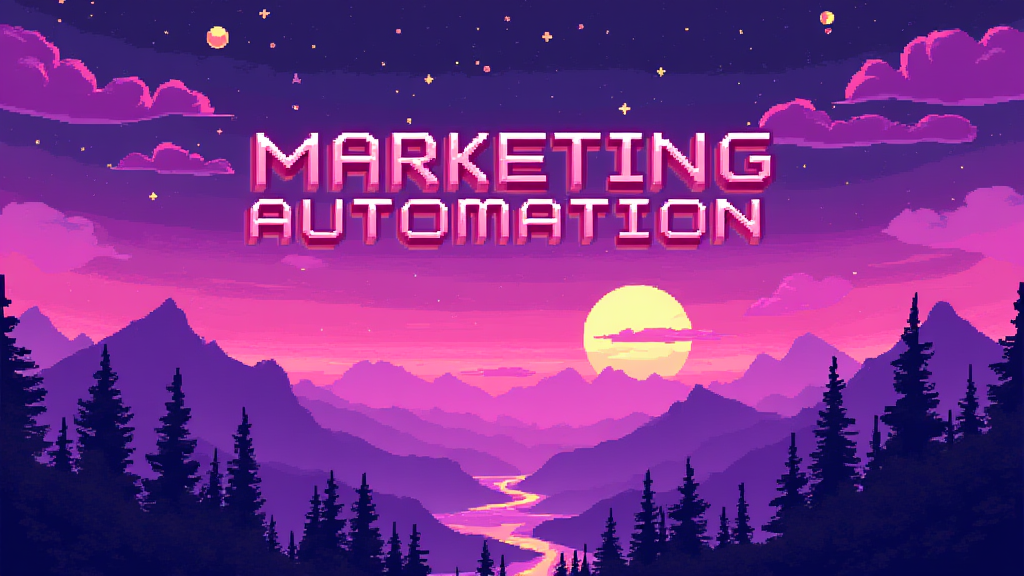Marketing Automation: Streamlining Campaigns

Published on: October 01, 2024
Marketing Automation is a powerful technology-driven approach that enables businesses to streamline, automate, and measure marketing tasks and workflows. This innovative strategy allows companies to nurture prospects with highly personalized, useful content that helps convert them into delighted customers. By leveraging marketing automation platforms, organizations can significantly enhance their efficiency, improve customer experiences, and drive revenue growth.
🚀 The Importance of Marketing Automation
In today's fast-paced digital landscape, marketing automation has become an essential tool for businesses of all sizes. Here's why it's crucial:
- Efficiency: Automates repetitive tasks, freeing up time for strategic initiatives
- Personalization: Delivers tailored content to prospects based on their behavior and preferences
- Lead Nurturing: Guides leads through the sales funnel with targeted messaging
- Data-Driven Decisions: Provides valuable insights for optimizing marketing efforts
- Scalability: Allows businesses to manage large-scale campaigns without proportional increases in staff
🔗 Key Components of Marketing Automation
A comprehensive marketing automation strategy typically includes the following elements:
- Email Marketing: Automated email campaigns based on user actions or time triggers
- Lead Scoring: Assigning values to leads based on their interactions and characteristics
- CRM Integration: Syncing customer data across marketing and sales platforms
- Social Media Management: Scheduling and analyzing social media posts
- Analytics and Reporting: Tracking campaign performance and ROI
📊 Marketing Automation by the Numbers
The impact of marketing automation on business performance is significant:
| Metric | Impact |
|---|---|
| Lead Generation | Increase by up to 451% |
| Conversion Rates | Improvement of 77% |
| Sales Productivity | Boost of 14.5% |
| Marketing Overhead | Reduction by 12.2% |
🛠️ Implementing Marketing Automation
To successfully implement marketing automation, consider the following steps:
- Define your goals and KPIs
- Choose the right marketing automation platform
- Develop a content strategy aligned with your buyer's journey
- Set up lead scoring and segmentation criteria
- Create automated workflows and campaigns
- Continuously test, analyze, and optimize your efforts
❓ Common Challenges in Marketing Automation
While marketing automation offers numerous benefits, it's not without challenges:
- Data Quality: Ensuring accurate and up-to-date customer information
- Content Creation: Producing enough high-quality content to fuel automated campaigns
- Integration: Connecting various tools and platforms seamlessly
- Personalization Balance: Avoiding over-automation that feels impersonal
- Skill Gap: Training teams to effectively use marketing automation tools
🤔 Questions to Consider for Your Marketing Automation Strategy
As you implement marketing automation in your Sales or Marketing Stack, ask yourself:
- How can we align our marketing automation efforts with our overall business objectives?
- What key performance indicators (KPIs) should we track to measure the success of our automation initiatives?
- How can we ensure our automated messages remain personalized and relevant to our audience?
- What processes can we automate to free up our team's time for more strategic tasks?
- How can we use the data gathered from our marketing automation efforts to improve our customer experience and drive revenue growth?
By carefully considering these questions and implementing a well-thought-out marketing automation strategy, you can significantly enhance your marketing efficiency, improve customer engagement, and drive sustainable business growth.
















